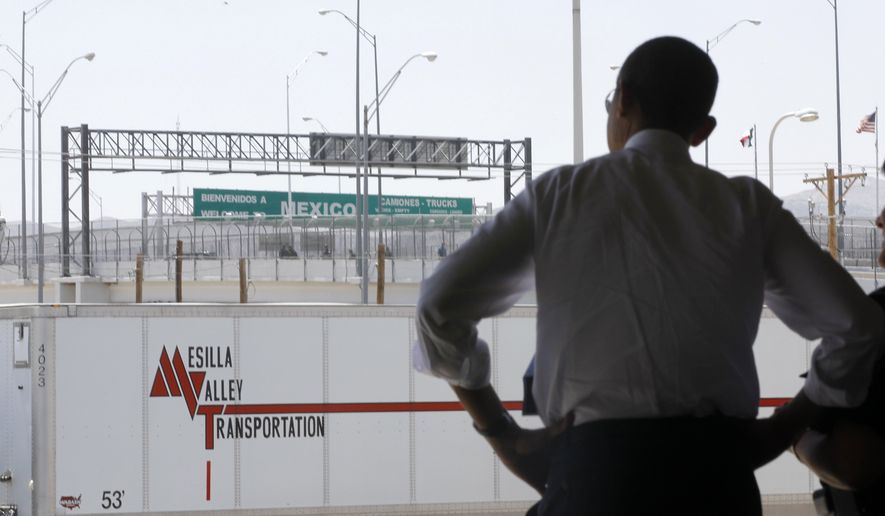The government suspended naturalization ceremonies and banned officers from approving any new applications for citizenship earlier this week after realizing its background check system was broken and ineligible people may have been slipping through, a key congressman revealed Friday.
House Judiciary Committee Chairman Bob Goodlatte, whose office was tipped off to the monumental error, said he was stunned by the problem — and also by the fact that the administration never bothered to inform him of it.
In the internal email Mr. Goodlatte obtained, the associate director at U.S. Citizenship and Immigration Services ordered all officers “not to approve or oath any naturalization cases in ELIS,” referring to the Electronic Immigration System that’s the case management system for processing applications.
“At this point we are not confident that proper FBI Name Checks have been run on certain ELIS cases. At this point we are uncertain of the scope of the problem,” Daniel M. Renaud, the associate director, said in the email.
FBI name checks are a critical part of the application process, giving immigration officers a look at potential criminal histories or other national security red flags that would make someone ineligible for citizenship.
Mr. Goodlatte demanded USCIS detail when it discovered the problem and how many cases were affected, and said the agency should take steps to strip citizenship from anyone who shouldn’t have been approved.
Homeland Security spokesman Aaron Rodriguez said the department will respond directly to Mr. Goodlatte, but insisted officials take the background process seriously.
The spokesman said FBI name checks are one of a number of steps in the process, each of them aimed at weeding out bad citizenship applications. But Mr. Rodriguez said the name checks are a critical part of the process, and must be completed before someone is cleared to come in for a naturalization interview.
“Naturalization applications represent a significant portion of USCIS’s caseload, and as with any major system change, some challenges were expected as we moved to electronic processing of the N-400. We will continue to employ multiple quality controls to ensure the integrity of the naturalization process,” the spokesman said.
In his email to employees, Mr. Renaud said officers were allowed to continue conducting citizenship interviews but could not issue a final approval. In emergency cases where the case must be decided or an oath administered, he said, officers needed to get written confirmation from a regional office that the FBI information in the system was correct.
• Stephen Dinan can be reached at sdinan@washingtontimes.com.




Please read our comment policy before commenting.